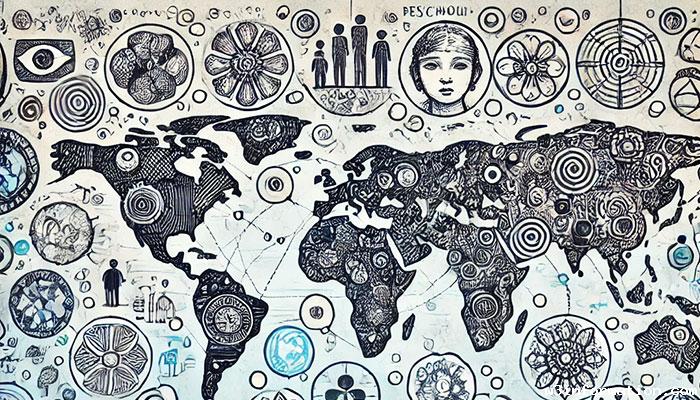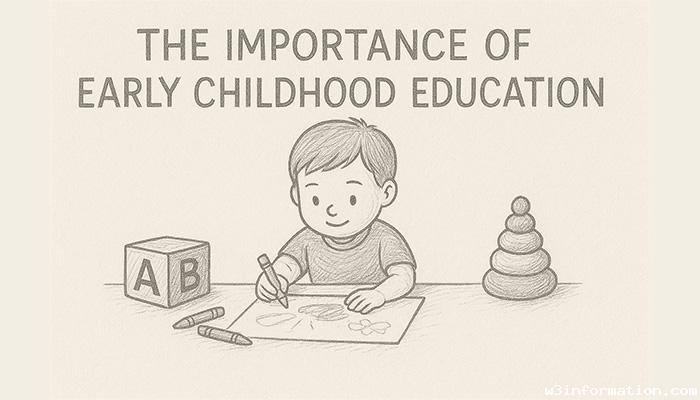How Cultural Differences Shape Psychological Perspectives
Cultural contexts significantly influence psychological perspectives which determine how people perceive and interpret their surroundings and respond to them. This blog investigates how psychology interacts with cultural differences by examining the effects of various cultural norms and values on mental processing and behavior patterns along with therapeutic approaches.
Understanding Cultural Influences in Psychology
2.1 Defining Culture in Psychology
A community's behavior is directed by its collective beliefs and values which together form their norms and practices. Culture serves as an essential framework for interpreting our world while shaping foundational psychological perspectives.
2.2 Cultural Psychology vs. Cross-Cultural Psychology
Researchers in cultural psychology study the ways cultural factors impact psychological functioning within distinct groups. Cross-cultural psychology evaluates psychological phenomena across various cultures to identify what human traits are universal versus those that depend on cultural context.

Key Areas Where Culture Shapes Psychological Perspectives
3.1 Perception and Cognition
The way people interpret and understand information varies according to their cultural background. Analytical thinking which centers on individual elements is a common focus in Western cultures whereas Eastern cultures prefer holistic thinking that takes into account the larger context.
3.2 Emotional Expression and Regulation
Different cultures display unique patterns in both expressing and regulating emotions. Asian collectivist societies value emotional control to preserve social harmony while Western individualist cultures support frank emotional expression.
3.3 Identity Formation
Cultural norms shape individual and collective identities. Collectivist cultures link identity to group belonging while individualist cultures focus on personal accomplishments and self-reliance.
3.4 Communication Styles
High-context cultures depend on indirect communication and nonverbal signals while low-context cultures prefer straightforward verbal expressions. Interpersonal interactions and conflict resolution processes are shaped by cultural differences.
Cultural Differences in Mental Health Perception
4.1 Stigma and Mental Illness
Attitudes toward mental health demonstrate significant variation across different cultural belief systems. Certain cultures stigmatize mental illness which causes people to avoid seeking treatment while others accept psychological challenges as normal and discuss them openly.
4.2 Traditional Healing Practices
Traditional healing techniques exist alongside modern psychological practices in many cultures. The use of Ayurveda, acupuncture and spiritual rituals demonstrates how mental health treatments integrate cultural values.
4.3 Help-Seeking Behaviors
The cultural rules of a society determine both the timing and approach of psychological help-seeking behavior. People from collectivist societies prefer family support to professional counseling when dealing with psychological issues.
Impacts on Psychological Research and Practice
5.1 Cultural Bias in Research
The biases inherent in dominant cultures shape psychological research which reduces its effectiveness when applied to diverse populations. The inclusion of multicultural perspectives strengthens the validity and generalizability of research outcomes.
5.2 Development of Culturally Sensitive Therapies
Therapists should modify their treatments to correspond with the cultural values and beliefs of their patients. Culturally adapted cognitive-behavioral therapy (CBT) techniques modify therapeutic practices by taking cultural contexts into account to achieve better results.
5.3 Ethical Considerations in Cross-Cultural Psychology
Psychological ethics demand practitioners to understand and respect the cultural norms of their clients. Both researchers and practitioners should refrain from projecting their cultural biases onto various demographic groups.
Case Studies and Research Insights
6.1 Hofstede’s Cultural Dimensions
Hofstede’s model outlines essential cultural dimensions including individualism versus collectivism and power distance which shape psychological behaviors and workplace interactions.
6.2 Indigenous Psychology
Indigenous psychology focuses on studying mental processes through the lens of native cultural contexts. Indigenous psychology maintains respect for cultural heritage while delivering unique perspectives on human behavior.
6.3 Real-Life Examples
The experiences of immigrants facing acculturation stress demonstrate how cultural integration and conflict shape psychological perspectives in multicultural societies.
Applications and Implications
7.1 Enhancing Multicultural Competence
Psychologists who develop cultural competence are better equipped to work effectively with diverse populations. Cultural competence development requires knowledge of different cultural values, communication methods and ethical standards.
7.2 Education and Training
When educational curricula include cultural psychology instruction future psychologists gain the skills necessary to meet global population needs while managing cultural complexities.
7.3 Fostering Global Collaboration
Psychological theories and practices become more inclusive and mutually understandable through collaborative research which integrates cultural perspectives.
Conclusion
Psychological perspectives are deeply influenced by cultural differences which determine the way people think and feel and how they behave. The field of psychology can develop more inclusive and effective methods for understanding human behavior through cultural diversity while supporting personal development and promoting social unity.
 Top 10 Comfort Foods to Try This Winter
Top 10 Comfort Foods to Try This Winter
 Top 10 Christmas Destinations Around the World
Top 10 Christmas Destinations Around the World
 Navigating Adolescence: Tips for Parents and Teens
Navigating Adolescence: Tips for Parents and Teens
 How to Start a DIY Craft Project on a Budget
How to Start a DIY Craft Project on a Budget
 How to Build Strong Family Bonds in the Digital Age
How to Build Strong Family Bonds in the Digital Age
 The Importance of Early Childhood Education
The Importance of Early Childhood Education